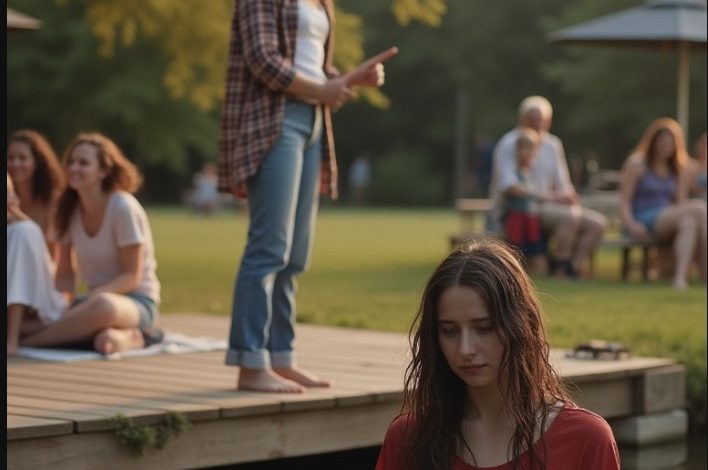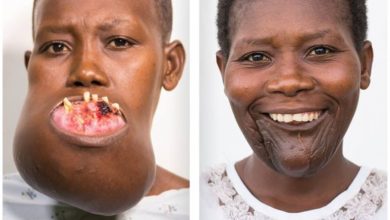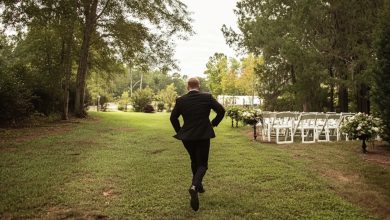“When I Finally Said ‘No,’ I Discovered the Strength to Build Something That Truly Lasted”

At every yearly family gathering, my older sister Maria managed to make me feel small. That summer at the lake, she pushed me straight into the water without warning. The cold hit me like a punch, and as I gasped for air, I heard her laughing above me. “Oh, don’t be so dramatic,” she called out, her voice sharp and mocking, slicing through the murky lake water.
On the dock, my parents, Rebecca and David, stood watching. Their smiles were polite and frozen, as if they were looking at some performance instead of their youngest daughter struggling to breathe. They didn’t say anything. They didn’t move. I didn’t yell or cry. I simply clawed my way back to shore, lungs burning, and felt something inside me grow colder and harder than the lake itself.
Two weeks later, the $50,000 my parents had saved for Maria’s college tuition was gone. And so was I.
My name is Bella. I’m 22 years old. This is the story of how I took back control of my life—by taking the money my sister expected and walking away without leaving a trace.
The smell of pine needles mixed with barbecue smoke around the cabin that day. It was an idyllic picture on the surface—our family’s favorite holiday spot—but underneath it felt like a play I’d been forced to star in every year. I was always cast as the dependable, invisible little sister. Maria, at 24, was the bright and charming lead everyone adored. She had a natural way of making people feel like her closest friend—until she needed something from them.
“Hey, little sis,” she slurred as I walked past her, a crooked smile twisting across her face. “Thinking about all that money Grandma left you?”
I stayed silent. My inheritance—mine, not hers—had become a constant thorn in the family’s side. My grandmother had been a quiet, determined woman who built a construction company from nothing. She had noticed the difference between us: how I worked and saved while Maria partied and spent. When she died, she left most of her estate to me. My parents and Maria had never forgiven me.
Maria blocked my path. “Don’t be like that. You’re always so serious. You should lighten up.”
Then she shoved me. Hard.
One second my feet were on the wooden dock, and the next I was falling, the world tilting, and then a shock of icy water swallowed me. I surfaced, sputtering, only to sink again. Laughter struck me before the air did—Maria doubled over, pointing at me, her shriek echoing across the lake. “Don’t be so dramatic!”
On the porch, my parents smiled faintly but didn’t move to help. That old familiar panic clawed at my chest. This wasn’t a joke. I wasn’t being dramatic. And in that moment, as I watched them laugh and do nothing, something inside me snapped for good.
The drive home afterward was silent and cold, as if nothing had happened. But for me, it felt like a lifetime had passed in an hour. Their detached eyes dredged up old memories. I remembered being sixteen, when Maria, her license suspended, took my first car without permission and crashed it. My mother had pulled me aside. “She made a mistake, Bella. Be a good sister. That money your grandmother is saving for you can cover it, right?” And I had paid. Maria never even said thank you.
I remembered my twentieth birthday, wiring Maria $5,000 from Las Vegas. My dad had clapped me on the shoulder and said, “That’s my girl. Family helps family.”
The next few days at home were a blur of forced smiles and stiff politeness. Everyone pretended nothing had happened. Somehow that was even worse than if they’d been angry. The breaking point came on a Thursday night. I was heading downstairs when I heard my parents’ voices through the door.
“She’s barely spoken in three days,” my mother, Rebecca, said with irritation. “This silent treatment is childish.”
“She always gets over it,” my father David grunted.
Rebecca snapped. “We don’t have time for her to ‘get over it,’ David. Maria needs the down payment for that MBA program by the end of the month. Fifty thousand dollars. Did you forget?”
There was a pause. Then her voice dropped to a whisper. “What if we told Bella the business was about to fail? That we needed her to co-sign a loan to save it?”
My blood ran cold.
“She would do it if we framed it right,” my mother continued. “We’ll make it about family, about responsibility. We get the loan, give Maria the fifty thousand, and figure the rest out later.”
I felt sick. They weren’t just taking advantage of me; they were planning to trap me in debt to fund my sister’s life.
That night, I called my best friend Michelle. “They did what?” she hissed. “Bella, they’re not just using your money. They’re using you. They disrespect you because they know you’ll just take it.” Then she asked, “Have you ever once felt loved by them with no conditions?”
Her question hit me harder than the cold water. I tried to think of a single time. Nothing came.
Michelle gave me the number of a lawyer, Sarah Blackwood. Sarah’s office was in a sleek, glass-walled building, a world away from my family’s cluttered home. She listened quietly as I told my whole story.
“Bella,” she said finally, her voice calm but firm. “Let’s be absolutely clear. The assets your grandmother left you are yours alone. You have no legal obligation to fund your sister’s education or your parents’ plans. What they’re proposing crosses into attempted fraud.”
Hearing it laid out so plainly was like a weight lifting off me. We talked for over an hour, making a real plan. I left her office with something I’d never had before—power. They had pushed me into the lake expecting me to flail. They didn’t know I was about to build a dam.
Over the next two weeks, I played my role perfectly. I acted like the quiet, obedient Bella they knew. Inside, a storm was building.
One evening at dinner, I sighed and said, “I got some bad news today. That tech stock I invested in crashed. I lost a lot of money.”
Their reaction was instant—not concern for me, but panic.
“You’re joking,” Maria snapped. “What about my MBA?”
“You can’t just lose that money, Bella!” my mother exclaimed. “Your grandmother left it for the family’s security!”
The hypocrisy made me dizzy. My worth to them was not as a daughter but as a wallet.
The next day, I began to act. With Sarah’s help, I created a private scholarship foundation. I donated the $50,000 my family expected for Maria to this new foundation, which would give scholarships to deserving students in our community. We named it with a touch of irony: The Wilson Scholarship Foundation—our family name.
While Sarah handled the paperwork, I prepared my escape. I landed a graphic design job three states away, found a small apartment, and paid the deposit from a new bank account. Late at night, I packed my real life—my grandmother’s tools, my design books, photos of me and Michelle—one box at a time.
My family, oblivious, planned their final act. My mother announced a “special family meeting dinner” and cooked my favorite meal.
“Bella,” she began, a perfect tear sliding down her cheek. “We’re in danger of losing everything.”
My father slid a stack of papers across the table: a loan application. “We need your help, sweetheart. Just a signature.”
“To save your family,” Maria added. “It’s time to be an adult, little sister.”
I looked at their faces. The anger inside me had burned out, leaving a calm, cold clarity. I picked up the pen they had placed next to the papers, held it, then set it down. I stood.
“No,” I said quietly, but my voice filled the room. “I won’t sign anything.”
I turned, walked upstairs, grabbed my duffel bags, and walked out the front door without looking back.
The real climax came three days later at the bank. Maria, assuming my “tantrum” was over, tried to set up the wire transfer for her tuition.
“I’m sorry, Miss Wilson,” the banker told her. “That account was closed two days ago. The funds were transferred out.”
“Transferred where? That’s my money!” she must have yelled.
The next day, a cream-colored envelope arrived at our house for Ms. Maria Wilson. Inside, on heavy letterhead, was a letter:
Dear Miss Wilson,
On behalf of our board of directors, we are pleased to inform you that you have been named the honorary inspiration for the newly established Wilson Scholarship Foundation. A generous, anonymous donation of $50,000 has been made in your family’s name to support bright, deserving students in our community who have overcome major obstacles…
I can imagine it perfectly: Maria’s face going pale. My mother snatching the letter. My father sinking into a chair. The money wasn’t just gone—it had been turned into a monument to their own greed.
The fallout was instant. My phone buzzed with furious texts. “Where’s my money? You ruined my life. You’re dead to me,” Maria wrote. My mother left tearful voicemails. My father texted, “Call your mother. You’ve upset her terribly.”
I blocked them all. One by one. The silence that followed was beautiful.
A few days later, Aunt Carol called, her voice syrupy sweet. “Bella, honey, why don’t you just come home so we can talk this out?” I knew she was their last-ditch attempt; I’d overheard my mother on the phone with her about a loan. She wasn’t a peacemaker—she was a creditor.
“I’m fine, Aunt Carol,” I said calmly. “There’s nothing to talk about.” I hung up and blocked her too.
Their final move was a welfare check. Two police officers appeared at my new apartment door. “Ma’am, your family reported you left under unusual circumstances.”
“Officers, I’m 22 years old,” I said, showing them my ID. “I moved here for a new job. Please tell my family I’m safe and that I don’t want contact. Any further attempts will be considered harassment.”
They understood. My family’s power over me was officially gone. I was free.
It’s been over a year now. My new city feels like home. My job challenges me and fulfills me. The people around me know me as Bella the designer, not Bella the family bank.
Last week, a letter arrived from a young woman—the first recipient of The Wilson Scholarship Foundation. She wrote about being a single mother working two jobs, and how the scholarship let her quit one and spend more time with her son. It meant she could buy textbooks without skipping meals. It meant she could see a future.
“I don’t know who the anonymous donor is,” she wrote at the end. “But if you ever meet them, please tell them they didn’t just give me money. They gave me hope.”
I folded the letter, a genuine smile spreading across my face. I had spent years setting myself on fire to keep my family warm, only to realize they stood by the flames complaining about the cold. My act of rebellion had become an act of creation. The money they saw as their right had turned into someone else’s chance. And that was a foundation worth building.










